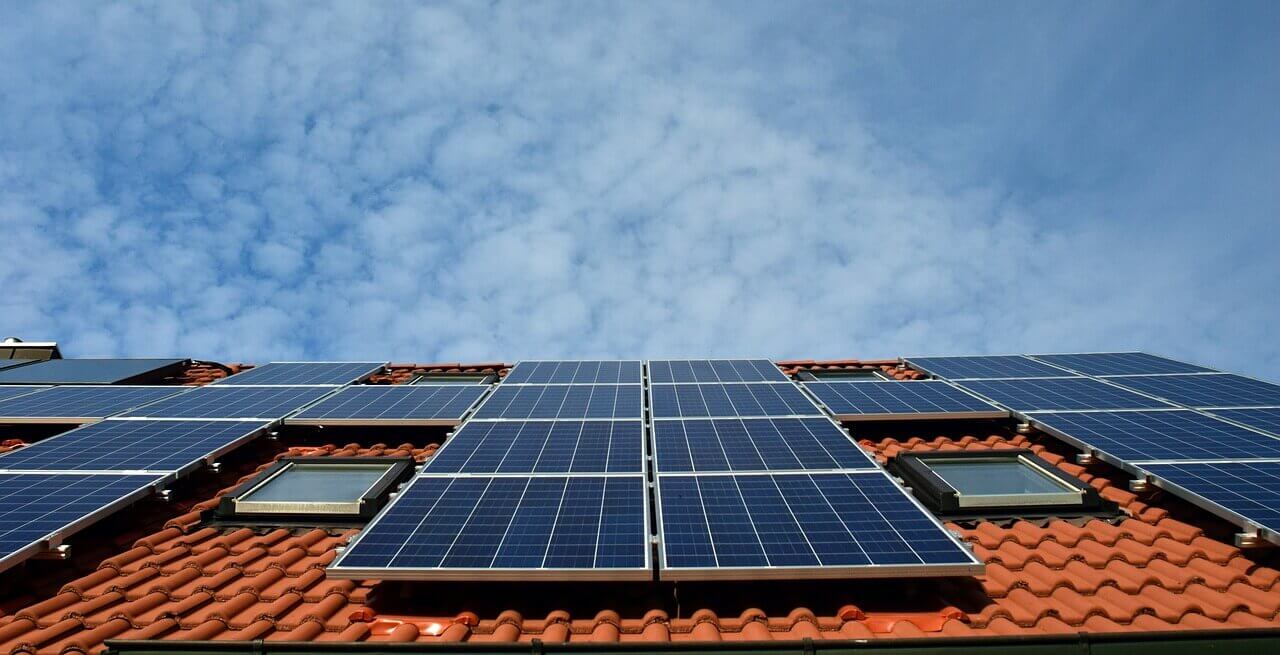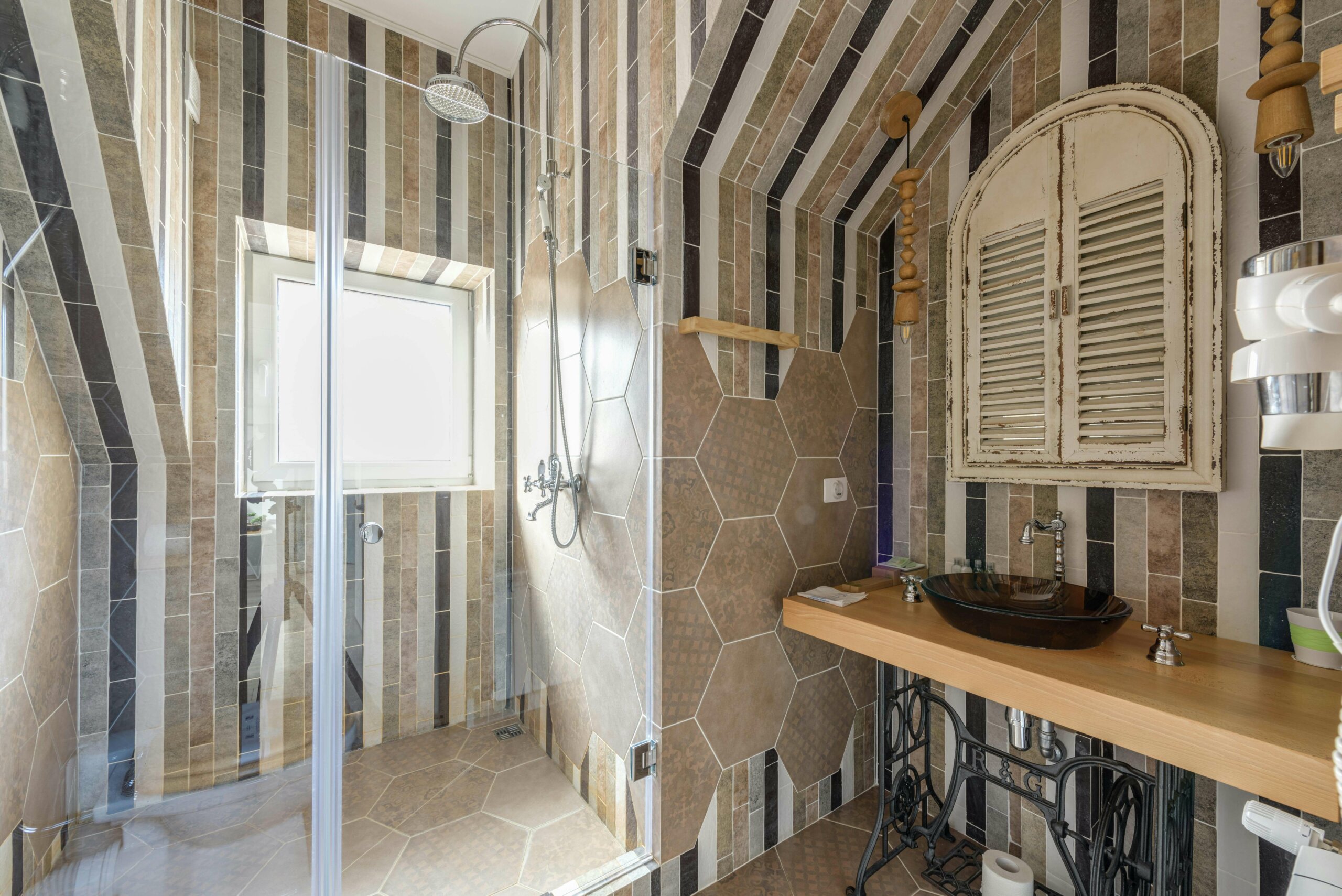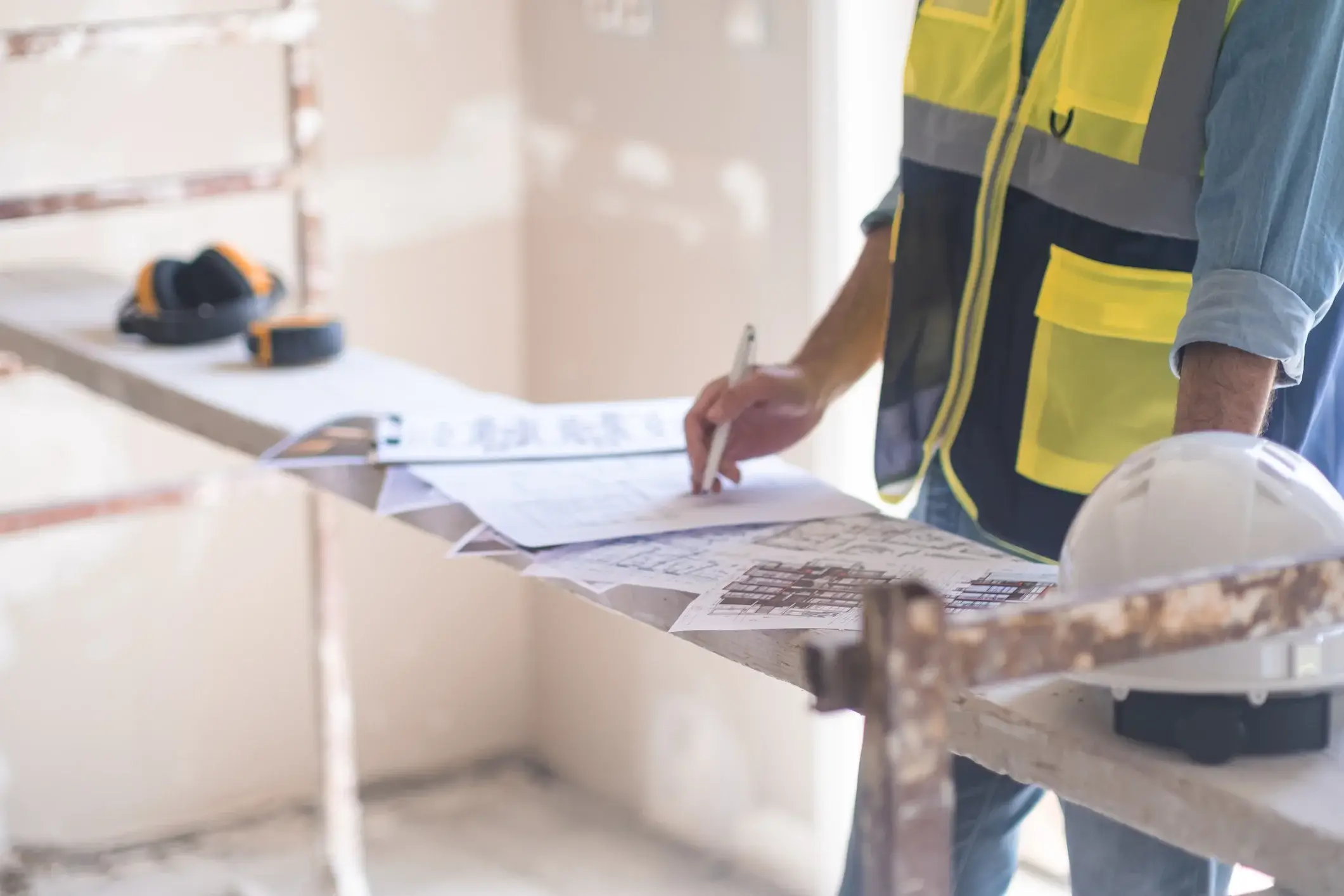Energy renovation is both an economical and eco-friendly option in France, whether it involves renovating an old or modern house or an apartment. It encompasses numerous operations, such as insulation works, the installation of new heating systems, the placement of solar panels, as well as the renovation of doors and windows. This renovation approach is particularly popular in France currently, as it offers tangible benefits for both homeowners and the environment.
Homeowners opting for energy renovation benefit from a cool and comfortable indoor temperature throughout the year, regardless of the season. Furthermore, a renovated property sees an increase in its value, which can have a positive impact on the local and national economy. Energy renovation of homes is part of efforts towards ecological transition by reducing energy consumption and contributing to the reduction of greenhouse gas emissions, while also stimulating the economy through Energy Savings Certificates (ESC) and programs by the National Housing Agency (ANAH). To learn more about the details of energy renovation work, check out this article.
What is Energy Renovation?
In simple terms, energy renovation encompasses all works aimed at improving the energy performance of a home. It's one of the best ways to combat energy poverty. Indeed, homes account for 30% of energy consumption. Thus, the project aims to:
- – Reduce heating bills by making the dwelling less energy-intensive ;
- – Reduce carbon footprint by emitting less CO2 into the environment.
In short, it's an eco-friendly and economical gesture.
The public authorities in France have been seeking since the 1970s to promote the renovation of buildings in order to reduce their energy consumption and contribute to the ecological transition. In this regard, the state has implemented regulations and laws aimed at defining specific objectives regarding energy efficiency. Indeed, two types of renovation work are distinguished: comprehensive renovation, which aims to achieve more satisfactory levels of energy performance, and partial renovation, which involves carrying out work in batches.
To determine the degree of renovation required for your property, it's essential to assess its energy performance. For this purpose, you can opt for an Energy Performance Diagnosis (DPE), which, although not mandatory, is highly recommended. This diagnosis assesses your property's energy consumption and its impact on greenhouse gas emissions. Another option is an energy audit, which goes beyond the DPE by helping you identify priority works to improve your property's energy efficiency, as well as thermal loss points to address. These initiatives are part of national efforts to reduce energy consumption, combat greenhouse gas emissions, stimulate the economy through energy savings certificates (EEC) and programs by the National Housing Agency (ANAH), and are dedicated to renovating homes in favor of ecological transition.
What Are the Works Included in Energy Renovation?
Generally, energy renovation encompasses three types of works, all aimed at improving the comfort of occupants. Insulation, heating, and ventilation, these elements aim to increase the energy performance of your homes sustainably.
Insulation work
Whether it's thermal or acoustic insulation, whether it's in the attic, inside, or outside, insulation is one of the key points in energy renovation in France. Its objective is to limit heat losses and gains in homes, which must be done according to a well-defined priority order.
According to ADEME (French Environment and Energy Management Agency), approximately 25 to 30% of energy losses in a property come from roofs and walls. Therefore, insulating attics and roofs should be done first. By undertaking this approach, you can reduce your electricity bill by up to 60% and achieve significant energy savings. Moreover, properly done insulation enhances comfort in your house or apartment. These initiatives, in line with each plan and law promoting ecological transition, transform homes into "eco" buildings and help reduce the number of "energy sieves," while also boosting the national economy.
The second action is insulating walls, which represent 20 to 25% of energy loss. It can be done inside (internal insulation) or outside (external insulation). Easy to implement, internal wall insulation involves doubling existing walls with insulation panels. External wall insulation allows renovating the housing facade while enveloping it with insulating materials.
With 7 to 10% energy loss, low floors are also priorities in energy renovation. Insulating the lowest floor of your habitat helps reduce heating costs and improve foot comfort. Note that these works require the intervention of a specialist as they are more complex to carry out.
Installation of a Heating System
Once your home is well insulated, you can consider installing a new heating system. This greatly depends on the size of your house and its geographical location. However, with the energy transition, homeowners are turning to environmentally friendly and more economical models. The most popular ones include :
- – Heat Pumps (HP): Promoting energy savings, these pumps utilize renewable energies (water, air, geothermal) to generate heat inside a residence;
- – Wood heating: A efficient and cost-effective heating source, it's the least expensive solution, with various options such as wood stoves or biomass boilers ;
- – Solar water heaters: Producing no greenhouse gases, they harness the sun's energy to provide households with hot water.
There is also the condensing gas or wood pellet boiler, which also offers excellent heating comfort. Its role is to generate hot water to distribute it throughout the heating system (pipes, radiators). Thanks to technological evolution, it's now possible to install a heating regulator or programmer. This maintains the temperature according to the setting adapted to your lifestyle (day/night, week/weekend, holidays). Also, this configuration can lead to up to 15% energy savings.
Ventilation
For energy renovation in France to be a complete success, it is essential to improve the quality of the ambient air in your home, particularly since well-insulated housing allows less circulation of air. outside air. To do this, it is recommended to combine your renovation work with ventilation work. These guarantee the renewal of air and the evacuation of humidity.
You can opt for the installation of a Mechanical Controlled Ventilation (MCV) or a Distributed Mechanical Ventilation (DMV). This choice helps limit indoor pollution while reducing your electricity bill. In parallel, don't forget to pay attention to the doors and windows of your house or apartment. Double or triple glazed windows ensure excellent thermal and acoustic insulation, while the installation of shutters reinforces energy conservation in the housing. These improvements in air quality, insulation, and ventilation are essential to ensure the success of your energy renovation projects, in line with ecological transition. They also help you save on your water, gas, and electricity bills while boosting the building sector economy.
What about prices ?
Before discussing prices, know that for an energy renovation project, you should turn to professionals with the RGE certification (Recognized Guarantor of the Environment). This label indicates that the company you've hired meets the criteria set by the state to carry out your work. These specialists can be numerous, such as masons, roofing specialists, facade workers, waterproofers, carpenters, drywall installers, plumbers, heating engineers, and many others. They will provide you with plenty of advice, especially regarding the choice of materials suitable for your renovation.
As for the cost of energy renovation works in France, it depends on various criteria, including :
- – Labor costs of professionals responsible for carrying out the work ;
- – The precise condition of the property to be renovated, particularly its current state in terms of energy efficiency ;
- – Specific constraints related to the location of the property ;
- – The materials used and the area to be insulated or improved ;
- –The level of energy improvement targeted by the homeowners.
Therefore, it's challenging to precisely determine the total cost of a house renovation project. However, it's possible to estimate an average. According to experts, the cost of these works generally ranges from 200 euros to 450 euros per square meter. It's important to note that for an older property requiring more extensive energy renovation, the cost may be higher. Conversely, for a property with better energy performance and lower consumption, the renovation price will likely range between 400 euros and 450 euros per square meter. These works are often supported by various government aids, such as energy efficiency certificates (CEE), aimed at encouraging ecological transition and boosting the economy in the building sector.
For common works, such as attic and roof insulation, the price ranges between 80 euros and 120 euros per square meter. The installation price for a condensing boiler will range from 4,000 euros to 8,000 euros including taxes. For a heat pump, the average amount depends on the type of installation, including air-to-air heat pump (6,600 euros), air-to-water heat pump (12,700 euros), and geothermal heat pump (15,000 euros). As for the ventilation system, budget an average of 900 euros for a Mechanical Controlled Ventilation (MCV) and 4,500 euros for a Mechanical Distributed Ventilation (MDV).
Energy Renovation Grants: Options to Lower Your Costs
To ensure that property owners excel in their energy renovation projects in France, the government offers various financial aids. Whether you are an owner-occupier, landlord, tenant, or occupant free of charge, there are likely grants and subsidies available to encourage you to undertake these works. These governmental initiatives aim to support ecological transition, reduce energy consumption in homes, and boost the economy in the building sector. This is made possible through energy efficiency certificates (CEE) and other plans and laws dedicated to housing renovation.
MaPrimeRénov
Replacing the Energy Transition Tax Credit (CITE) and the aids from the National Housing Agency (ANAH), MaPrimeRénov' is the central grant. It is open to all homeowners and condominium associations. However, the eligible properties are those built more than 15 years ago. This aid aims to target the most energy-consuming houses and apartments classified in energy labels E, F, and G in the DPE. The amount obtained from MaPrimeRénov' depends on household incomes and the ecological benefits derived from the works. It is paid after the renovation works by bank transfer.
Eco-friendly Zero-Interest Loan
The eco-PTZ (eco-friendly zero-interest loan) is a credit accessible to all homeowners wishing to renovate their homes. The amount can go up to 30,000 euros over 15 years, with interest being covered by the state. Thus, all households can benefit from a zero-interest rate. To benefit from this scheme, it is sufficient to request it from banks that have signed an agreement with the state. The majority of national banks have entered into this partnership (BNP Paribas, La Banque Postale, Crédit Agricole). Homeowners can apply for the eco-PTZ to insulate their homes, replace windows, or install efficient heating systems.
Rénovation Advance Loan (PAR)
Offered in partnership with La Banque Postale and Crédit Mutuel, the renovation advance loan is specifically aimed at low-income households living in homes classified as "thermal sieves." It complements financial aids for energy renovation works. The objective of this scheme is to finance remaining expenses for households that do not have access to conventional loans. It's important to note that the Renovation Advance Loan benefits from a 75% state guarantee.
Regarding the loan amount, it usually starts at €3,500, but the precise ceiling is set in agreement with the bank, based on the applicant's needs and financial situation. These measures have been put in place to encourage energy renovation of homes, support ecological transition, and reduce energy consumption. Additionally, they stimulate the economy, in line with plans and laws dedicated to the building sector in France.
Energy Efficiency Grants
The energy grant, also known as the EEC grant (Energy Savings Certificates), is directly provided by energy supply companies. It's a financial aid for energy transition aimed at allowing individuals to carry out energy-saving works at a lower cost. However, this scheme can only be granted if insulation works are carried out by an RGE professional. It's combinable with MaPrimeRénov', tax credits, and reduced VAT. As for the amounts, they depend on the type of works to be carried out, the geographical area, and household incomes.
Denormandie Tax Reduction
The Denormandie tax reduction is available to all individuals who have purchased a property to renovate in a "city center" neighborhood. It allows for a reduction in income tax. The cost of energy renovation works must represent at least 25% of the purchased property's price. Note that to claim this aid, you must carry out energy efficiency works.
There are also other financial aids, such as reduced VAT, energy vouchers, the "insulation boost" grant (loft, ground floor, roof), and the "heating boost" grant (heat pump, boiler, solar water heater), exemption from property tax, MaPrimeRénov' Serenity, and many others. Some of these aids can be combined, while others can be supplemented by loan aids.
What are the Benefits of Energy Renovation?
Energy renovation works in France bring only advantages. It is a highly profitable investment that improves and reinforces the energy efficiency of your home. You can bid farewell to thermal loss, drafts, as well as the sensation of cold or heat when you touch the floor or the wall. In short, you gain invaluable comfort while contributing to the reduction of greenhouse gas emissions, ecological transition, and the decrease in your energy consumption. This will allow you to make substantial savings on your water, gas, and electricity bills. These works also transform houses into "eco" housing, preventing them from remaining "energy sieves," which has a positive impact on the economy and the environment. To successfully carry out these projects, various financial aids are available to support you in your energy renovation efforts.
Most renovation works also aim to reduce energy consumption. They ensure long-term energy savings, typically ranging from 25 to 30%. In other words, electricity bills decrease, allowing even modest households to save a few euros annually. Moreover, by undertaking these actions with certified professionals, you'll benefit from tailored advice.
Aside from energy savings, renovation is also one of the best ways to preserve the environment. The ecological footprint of homes is reduced because they prioritize less energy-intensive equipment. If all buildings undergo renovation, France can significantly reduce its carbon emissions.

Examples of Energy Renovation Quotes
Here are some examples of energy renovation quotes to give you an idea of what they entail.
Example 1 : Attic Insulation
Area : 100 m²
Insulation Type : Blown Glass Wool
Thickness : 30 cm
Cost : €2,500
Example 2 : Window Replacement
Number of Windows : 10
Window Type : PVC Double Glazed Windows
Cost : €10,000
Example 3 : Heat Pump Installation
Type of Heat Pump : Air-to-Water Heat Pump
Power : 7 kW
Cost : €15,000
Example 4 : Comprehensive Energy Renovation
Works : Attic Insulation, Window Replacement, Heat Pump Installation
Cost : €30,000
Our advice is to request multiple quotes from different craftsmen before making your decision. Also, ensure that the craftsmen are RGE certified (Recognized Guarantor of the Environment). Additionally, don't hesitate to inquire about available financial aids.
Moreover, there are numerous financial aids available for energy renovation works. You may be eligible for MaPrimeRénov', CEE (Energy Efficiency Certificates), eco-friendly zero-interest loans, etc.
Table of Examples of Energy Renovation Quotes
Type of Work | Area | Description | Cost | Financial Assistance |
Attic Insulation | 100 m² | Blown glass wool, 30 cm thick | 2 500 € | MaPrimeRénov’, CEE, Eco-friendly Zero-Interest Loan |
Window Replacement | 10 windows | Double-glazed PVC windows | 10 000 € | MaPrimeRénov’, CEE, Eco-friendly Zero-Interest Loan |
Heat Pump Installation | – | Air-to-water heat pump, 7 kW | 15 000 € | MaPrimeRénov’, CEE, Eco-friendly Zero-Interest Loan |
Comprehensive Energy Renovation | – | Attic insulation, window replacement, heat pump installation | 30 000 € | MaPrimeRénov’, CEE, Eco-friendly Zero-Interest Loan |
The prices provided are examples and may vary depending on the size of your property, the materials used, etc. Therefore, it's important to enlist the services of a qualified artisan to carry out your energy renovation works. Don't hesitate to request multiple quotes to compare prices and services offered.
Achieve a Successful Energy Renovation with Reno.
Reno is a company specialized in building energy renovation. We assist individuals and professionals in their renovation projects, from initial assessment to the completion of works.
Our Services
Energy assessment : we conduct a comprehensive energy assessment of your property to identify weaknesses and propose tailored solutions to meet your needs.
Personalized advice : we provide advice on the best energy renovation solutions based on your budget and objectives.
Renovation works : we undertake all energy renovation works, from attic insulation to window replacement, and installation of heat pumps.
Works supervision : we ensure works are carried out smoothly and guarantee a high-quality result.
Our Advantages
Expert team : our teams consist of energy renovation experts who ensure high-quality workmanship.
Wide range of solutions : we offer a wide range of energy renovation solutions to meet all your needs.
Competitive prices : we provide competitive prices for all your energy renovation works.
Personalized support : we accompany you throughout your energy renovation project.
Why Choose Reno ?
– For a Successfully Completed Energy Renovation
– For Energy Savings
– For Increased Comfort
– For Enhancement of Your Property Value
Contact us today for a free quote !
Key Points of Energy Renovation
Energy renovation is a significant investment that can help you save energy and reduce your heating bill. By investing in renovation works aimed at improving the energy performance of your home, you can achieve significant savings on your energy bills while reducing your carbon footprint.
One crucial aspect of energy renovation is thermal insulation, whether it's for walls, attics, or windows. Good insulation helps reduce heat loss and maintain a comfortable temperature inside your home, while also lowering your energy consumption for heating and cooling.
Furthermore, installing more efficient heating and hot water systems, such as heat pumps and solar water heaters, also helps reduce energy consumption and greenhouse gas emissions. These technologies are often supported by financial incentives such as energy grants and tax credits, making energy renovation more accessible and cost-effective for homeowners.
Another important aspect of energy renovation is conducting an energy audit, which identifies weaknesses in your home and proposes tailored solutions to improve its energy efficiency. This audit can be conducted by a renovation advisor or a certified energy performance professional and is a crucial step in maximizing the benefits of your renovation project.
In summary, energy renovation is essential for reducing energy consumption, improving thermal comfort, and contributing to the fight against climate change. By investing in energy renovation works, you can not only enhance the quality of life in your home but also contribute to the transition towards a more sustainable and eco-friendly society.





